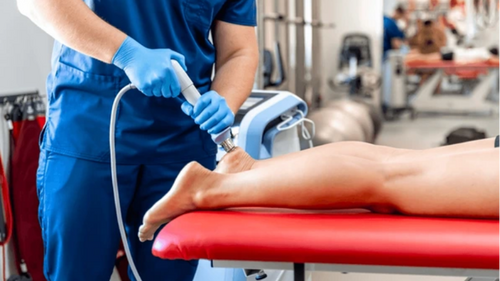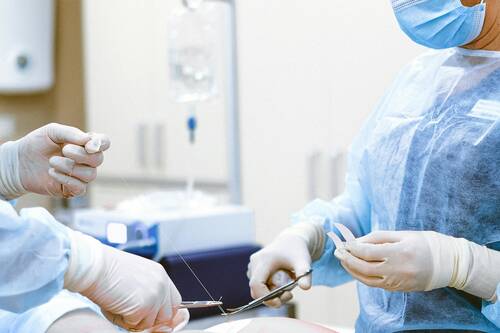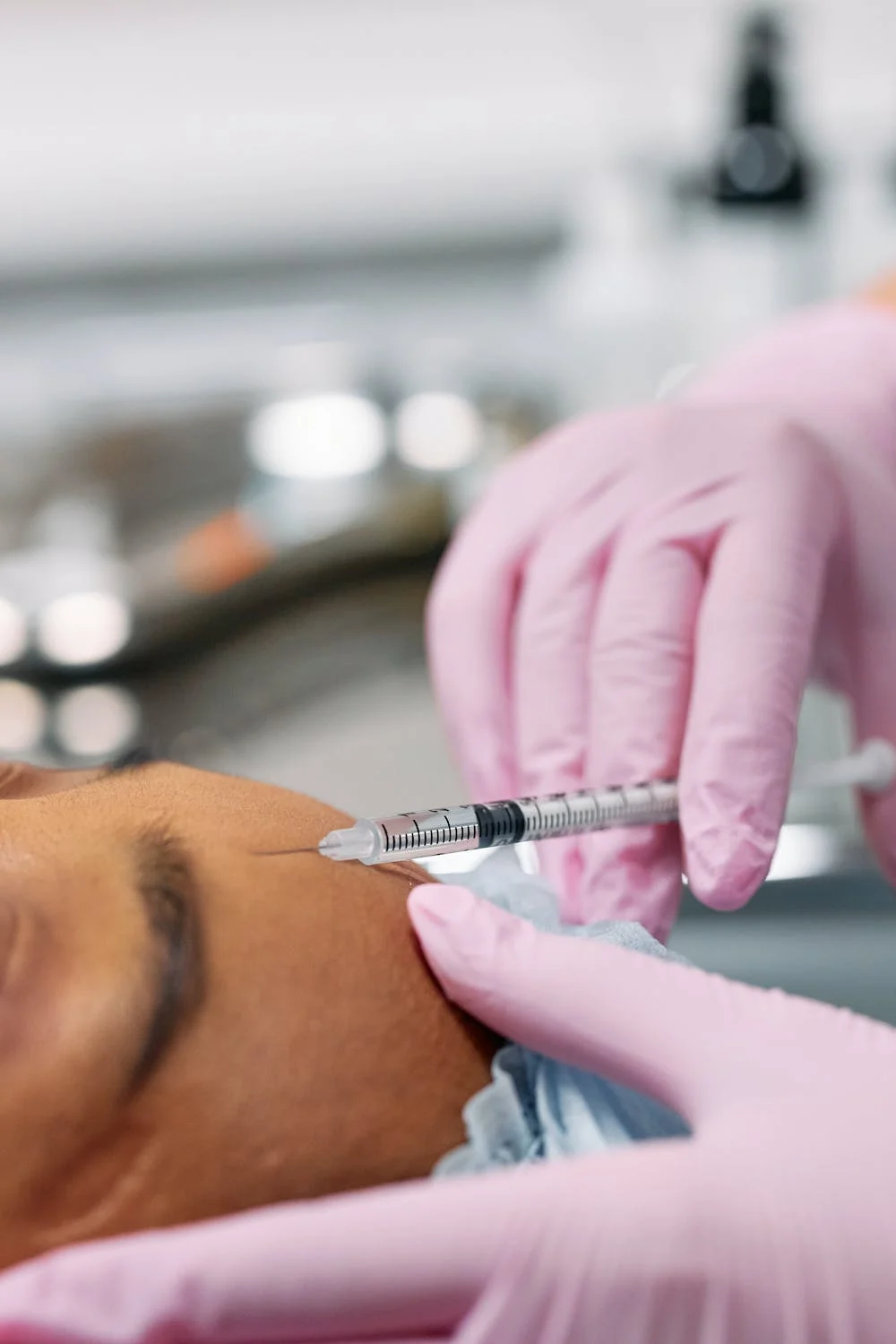Advancements in Cardiac Procedures Highlight Ever-Evolving Treatment Options
While a traditional open surgical approach may be better depending on the case, robotic surgery presents an array of advantages...
- It also helps to slow down the degradation of the existing collagen while activating the production of new ones.
- JUVELOOK is a facial rejuvenation product that works on most facial areas to address signs of aging and enhance the condition of the skin.
- The product gives the appearance of fine lines and wrinkles around the eyes a more youthful, renewed appearance by inducing collagen formation.
- It is a versatile solution for skin defects like freckles and marionette wrinkles, as well as neck rejuvenation.
- It can be used all over the face to address issues like nasolabial folds, forehead wrinkles, and general improvements to skin tone and texture.
A Beginner’s Guide to Botox in Salt Lake City: Where to Start
, understanding the process is crucial—results don’t appear immediately, so patience is necessary to see the full effects over time....
Botox in Barrie: What to Expect from Your First Treatment
- Introduction
- Understanding Botox: How It Works
- Benefits of Botox Treatments
- Preparing for Your First Botox Appointment
- The Treatment Process: Step by Step
- Aftercare: Tips for a Smooth Recovery
- When Will You See Results?
- Choosing the Right Clinic: Why Skin Vitality Medical Clinic Barrie?
- Common Questions and Concerns
- Your Journey to a Youthful Look Starts Here
- Introduction
- How Botox Works: Beyond the Aesthetic
- Botox for Migraine Relief
- Easing Symptoms of TMJ and Bruxism
- Reducing Excessive Sweating (Hyperhidrosis)
- Botox for Overactive Bladder
- Botox and the Treatment of Eye Conditions
- Alleviating Muscle Spasms and Disorders
- Emotional and Psychological Benefits of Botox
- Considering Botox for Medical Reasons
Five Things to Know Before You Go for Mole Removal in Vancouver
Acoustic Wave Therapy: Transforming Non-Invasive Aesthetic Treatments
- Body mass index (BMI) rating of 40 or higher, though some doctors may consider 35 or higher.
- Have a lower BMI but health complications that make losing weight quickly helpful
- For those who are younger, including adolescents, you may need to have a BMI of at least 40 to qualify
Understanding Different Types of Dermal Fillers: A Guide to Facial Rejuvenation Options
 Many patients curious about fillers but unsure where to start. It's important to know that different fillers work best for different areas of the face. Some are great for plumping lips, while others excel at filling in deep lines around the mouth or eyes.
When thinking about getting fillers, it's crucial to talk with a skilled doctor. They can help you pick the right type for your goals and explain what to expect. Fillers can give quick results, but they don't last forever. Most need to be redone every few months to a year.
(more…)
Many patients curious about fillers but unsure where to start. It's important to know that different fillers work best for different areas of the face. Some are great for plumping lips, while others excel at filling in deep lines around the mouth or eyes.
When thinking about getting fillers, it's crucial to talk with a skilled doctor. They can help you pick the right type for your goals and explain what to expect. Fillers can give quick results, but they don't last forever. Most need to be redone every few months to a year.
(more…)Beyond Beauty: How Aesthetic Treatments Contribute to Holistic Well-Being
The Psychological Boost of Aesthetic Treatments
One of the most profound effects of aesthetic treatments is their ability to enhance mental health. In today's society, where appearance can greatly influence self-esteem and confidence, many individuals find that improving their physical appearance leads to a noticeable boost in their psychological well-being. Procedures such as facials, chemical peels, and laser skin resurfacing do more than just clear the skin or reduce the appearance of scars—they can help individuals feel more confident in their own skin. This increase in self-esteem can lead to better social interactions, improved personal relationships, and even greater professional success. Moreover, when individuals feel good about how they look, they are more likely to engage in positive behaviors that further support their health, such as exercising regularly and maintaining a healthy diet. This creates a beneficial cycle where physical and mental well-being reinforce each other. (more…)Comparing gastric balloons: adjustability is key for improved success rates
WHAT IS A GASTRIC BALLOON
To understand the differences between an adjustable and non-adjustable gastric balloon, first, we need to understand how they work. A gastric balloon is made of silicone rubber that’s inserted through the mouth and placed in the stomach using an endoscope. Once it’s in the stomach, it’s filled with saline solution to take up space. Because of the lack of space around it once filled, the patient will feel satiated quicker, eat less, and therefore, lose weight. The procedure usually takes 15 minutes, and the patient can go home once the sedation wears off. The first two weeks after the procedure, the patient will be on a liquid diet and gradually transition to solid food. Usually, the healthcare professionals will offer other guidelines, such as a recommended diet or workout plan, so that the patient continues losing weight not only while the gastric balloon is inside but also after it’s been removed. Unless there is any intolerance issue, the balloon will remain in the patient’s stomach for six months. Once it’s removed, he or she is expected to continue practicing the same healthy habits to maintain the weight loss. (more…)- Learn about the health and aesthetic benefits of tummy tucks.
- Understand the importance of post-surgical care for optimal recovery.
- Discover common questions related to tummy tucks and their answers.
Table of Contents
1. Understanding Tummy Tuck Surgery
2. Considerations Before Surgery
3. Choosing the Right Surgeon
4. Preoperative Preparation
5. The Surgery Day
6. Postoperative Care and Recovery
7. Managing Expectations
8. Long-Term Results and Maintenance
Understanding Tummy Tuck Surgery
Tummy tuck surgery, technically known as abdominoplasty, removes excess skin and fat from the abdomen while tightening the underlying muscles. It is generally considered by individuals who have experienced significant weight loss, pregnancy, or aging, leading to a sagging midsection. These physical changes can be challenging to reverse through diet and exercise alone, making surgical intervention a viable option for achieving a flatter, firmer abdomen.
According to the American Society of Plastic Surgeons, tummy tucks are among the top cosmetic surgical procedures performed annually. This popularity can be attributed to the procedure's effectiveness in body contouring and the high satisfaction rates reported by patients. With modern techniques and advancements, tummy tuck surgery has become safer and more accessible, allowing more individuals to benefit from its transformative results.
Considerations Before Surgery
Critical factors must be evaluated before opting for a tummy tuck to ensure the best possible outcomes. One of the primary considerations is overall health status. Patients should be in good general health without underlying conditions that could complicate the abdominoplasty or recovery process. Additionally, weight stability is crucial. Individuals should aim to be at or near their target weight for at least six months before surgery, as significant weight fluctuations can affect the results.
(more…)Why Do Doctors Ask If You Have Crowns Before Surgery?
Natural Rhinoplasty
The Importance of Content Marketing in Healthcare
70% of companies believe content marketing has become more important to their organization, and content marketing is especially crucial in the healthcare industry. Content allows professionals to share their expertise, educate patients, and address common concerns. For plastic surgeons, content marketing and social media provides a platform to showcase their skills, share patient success stories, and explain complex procedures in an accessible way. This not only helps in attracting new patients but also fosters a sense of trust and reliability. (more…)Understanding the Psychological Benefits of Cosmetic Surgery
Enhanced Self-Esteem and Body Image
One of the most significant psychological benefits of cosmetic surgery is the enhancement of self-esteem and body image. We've all got our own physical quirks that can make us feel, well, less than confident. Whether you're looking to revitalize your facial features or refine your neck and jawline, surgical solutions like rhinoplasty, neck lifts, and facelifts can reshape your confidence from the inside out. Exploring various surgical solutions can bring profound changes, such as enhanced facial symmetry or a more defined neckline, which in turn can boost your self-esteem immensely. Think about it: when you feel good about how you look, your entire outlook changes. That's exactly what happens for many people after surgery, as the evidence clearly shows. With a stronger sense of self, social interactions become more enjoyable, professional opportunities abound, and life takes on a sunny disposition. (more…)LASIK: A Permanent Solution to the Hassle of Eyeglasses
- LASIK is a joint surgery that corrects vision. LASIK offers several advantages, including faster recovery and better vision.
- Recent advancements in LASIK technology have made the procedure safer and more effective.
- Understanding the risks and benefits of LASIK is essential for anyone considering the surgery.
 Another name for LASIK is Laser-Assisted In Situ Keratomileusis, a popular vision correction surgery that has helped millions achieve more precise vision. It involves using advanced laser technology to modify the cornea to let light reach the eye and be correctly focused onto the retina. This reshaping process significantly improves vision for those with refractive defects, including astigmatism, farsightedness, and nearsightedness. If you've been considering options like LASIK in Utah, you're part of a growing group of individuals seeking a life-changing solution to their vision problems.
Initially introduced in the 1980s, LASIK surgery has undergone numerous technological improvements, making it a safer and more reliable option for vision correction. It has improved the quality of life for millions and reduced the dependency on corrective eyewear, making daily activities more convenient.
(more…)
Another name for LASIK is Laser-Assisted In Situ Keratomileusis, a popular vision correction surgery that has helped millions achieve more precise vision. It involves using advanced laser technology to modify the cornea to let light reach the eye and be correctly focused onto the retina. This reshaping process significantly improves vision for those with refractive defects, including astigmatism, farsightedness, and nearsightedness. If you've been considering options like LASIK in Utah, you're part of a growing group of individuals seeking a life-changing solution to their vision problems.
Initially introduced in the 1980s, LASIK surgery has undergone numerous technological improvements, making it a safer and more reliable option for vision correction. It has improved the quality of life for millions and reduced the dependency on corrective eyewear, making daily activities more convenient.
(more…)It's paramount to have an in-depth consultation to determine eligibility, factoring in age, overall eye health, lifestyle, and expectations, prior...
Reduced Recurrence of Pilonidal Cysts with Addition of Laser Hair Removal
Outcomes of Prophylactic Salpingo-Oophorectomy After BRCA1/2 Breast Cancer Resection
Surgery: Post-Op Outcomes Differ by Gender of Surgeon
- We have been studying how the primary treating surgeons sociocultural characteristics impact the recovery of patients they are looking after.
- Specifically, we have been studying the effect of surgeon sex on outcomes such as death, complications and readmission after common and complex surgeries. These are outcomes that are important to patients and the health system.
- Previously, we showed that patients with a female surgeon had better short term (30 day) outcomes than similar patients having surgery with a man. This study asked the question of whether the sex of a patient’s surgeon affects patients’ longer term outcomes at 90 days and 1 year, after surgery.
Columbia Study Finds Large Increase in Gender-Affirming Surgery Over Time
Cannabis Use Disorder Linked to Higher Costs and More Complications After Surgery
The Changing Face of Cosmetic Surgery
 Individuality is the buzzword on the current aesthetic medicine scene at a time in which the arrival of the remote working phenomenon has sparked an interest in more facial surgery and procedures delivering a more natural effect. The American Society of Plastic Surgeons (ASPS) has reported that there has been a boom in facial feature surgery such as facelifts, blepharoplasties, and rhinoplasties. What’s more, although breast augmentations, liposuctions, and buttock augmentations continue to be in high demand, the results sought are no longer driven by celebrity trends. Instead, they are firmly focused on results that are in harmony with a patient’s physique. Finally, many clients are completely giving the knife a miss and opting for non- or minimally-invasive treatments that deliver great results. Below are the top trends taking over the sector. You may consider advice from a female plastic surgeon in Houston.
Individuality is the buzzword on the current aesthetic medicine scene at a time in which the arrival of the remote working phenomenon has sparked an interest in more facial surgery and procedures delivering a more natural effect. The American Society of Plastic Surgeons (ASPS) has reported that there has been a boom in facial feature surgery such as facelifts, blepharoplasties, and rhinoplasties. What’s more, although breast augmentations, liposuctions, and buttock augmentations continue to be in high demand, the results sought are no longer driven by celebrity trends. Instead, they are firmly focused on results that are in harmony with a patient’s physique. Finally, many clients are completely giving the knife a miss and opting for non- or minimally-invasive treatments that deliver great results. Below are the top trends taking over the sector. You may consider advice from a female plastic surgeon in Houston.




























